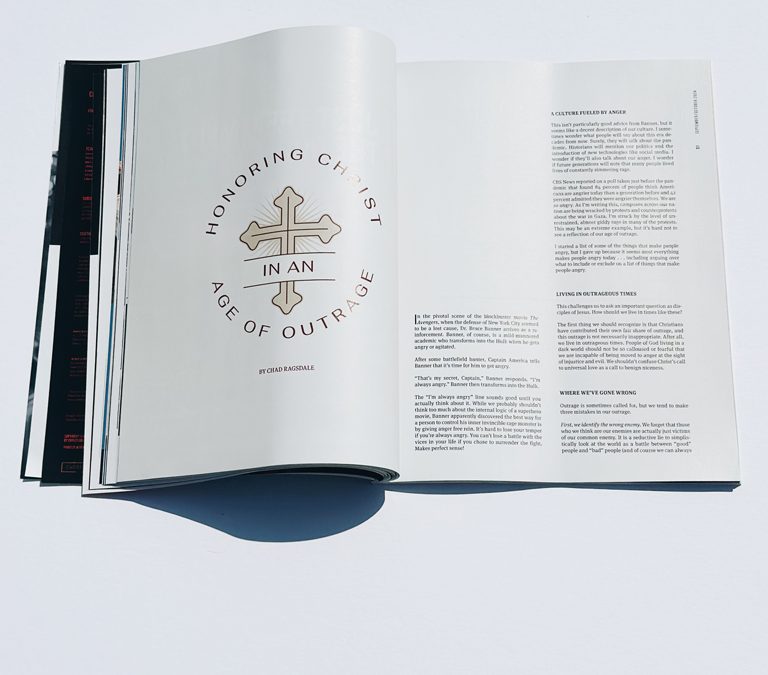Â
by Robert Reese
“¢ As Americans, we must view non-Western Christians as our equals. The attitude of looking down on people because they are not as “developed” as we are comes from the period of Christendom when the West ruled the world.
In the early church, the apostle Paul did not look down on people of other nationalities, but saw them as new creatures in Christ and heirs to all God”s promises (2 Corinthians 5:17; Ephesians 2:19). This allowed him to accept such people as coworkers.
“¢ The rank and file of global Christians must be equipped to share the gospel. The idea of professionals doing all the evangelism is also part of the era of Christendom when ordinary people were excluded from certain ministries. The biblical role of professionals is to train the rest for ministry (Ephesians 4:11, 12).
One of the top priorities for world missions today must be training, and this is an area where Americans can certainly help. But we may also invite non-Western missionaries to help us train our own people in evangelism.
Â
“¢ Sharing the gospel remains the top priority. Missions today often begin with social problems so deep that they consume all the missionaries” time and energy. The gospel spread so rapidly in the first 300 years of the church”s history because of the church”s deep conviction about the life, death, and resurrection of Jesus.
Once people are converted to Christ, then they are in a position to tackle their own social problems with much better hope of success. Christian insiders have a much better chance of solving long-standing social issues than foreign missionaries. Still, foreign missionaries are in a good position to train their converts to tackle such issues.
“¢ High moral standards remain crucial for global Christians. Such standards help spread the gospel. Americans need help in this, as standards for our church members have slipped dramatically. Church discipline has been thrown out in the current era of lawsuits and tolerance. Biblical standards call us back to holiness (1 Peter 1:15, 16).
On the other hand, we cannot be in the position of a global police force judging the morals of people of other cultures. Rather, missionaries can equip their converts with the basic tools so they can use Scripture to change their own cultures toward biblical standards.
Â
“¢ Charitable acts must characterize global Christians. Non-Christians should be able to see the love of God in our actions. Charity, however, should be characteristic of every Christian, not just those who are well-off. In the early church, even the poor were expected to give (Luke 21:1-4; 2 Corinthians 8:2). Missionaries should teach their converts to give generously in order to take care of local physical needs. Even in American churches, it seems easier to raise funds to give to distant causes than to alleviate poverty next door.
“¢ Every church must put their members” bodies on the front line (Romans 12:1). It is not enough to send money; we must also send our best people into world missions. Committed people are much more important to God”s mission than money, and local churches need to search out and find whom among their flocks to send, as the Antioch church did through prayer and fasting in Acts 13:1-3.
Â
“¢ Western money must be used wisely in world missions in order not to create damaging dependency. The assumption that the West is the banker for world missions comes from the period when Western Christians became the paymasters for missions. This went along with a condescending attitude toward non-Western Christians, which spread the disease of dependency. Dependency caused non-Western Christians to assume wrongly that they had nothing worthwhile to contribute to world missions.
The apostle Paul knew that money must be used carefully for it to be a help and not a hindrance to God”s mission (1 Corinthians 9:14-16). Consequently, he created no dependency either on himself or on funds he could raise.
“¢ Mission methods must be cheaply reproducible for maximum effectiveness. Americans have developed expensive methods that cannot be duplicated elsewhere. In fact, we have come to rely so heavily on borrowed money that many churches are seeing declining contributions to missions because of needing to repay loans for expensive buildings. Such luxuries did not characterize the early church, which had no buildings for the first couple of centuries. For Christianity to spread rapidly throughout the world, missions need to return to sustainable methods that do not require huge sums of money for success.
Â
“¢ Global Christians need to be teachable, and humble enough to learn from each other (2 Timothy 2:2). Christianity did not begin with us, nor will it end with us. God intends for every tribe, language, people, and nation to come to a knowledge of the truth (Revelation 7:9). As the gospel has entered different cultures, insiders in those cultures bring new insights to our understanding of God”s will and purposes. We need not only to share what we know, but also to listen to what others have discovered in their reading of God”s Word.
“¢ Expect and prepare for persecution. This is an area where American Christians have much to learn from non-Western believers. We have experienced a long period of peace within our own borders, despite interminable wars going on outside them. This has made us forget that persecution is the norm for Christians (2 Timothy 3:12). In the early church, persecution caused the spreading of the faith. This is still the case for many non-Western churches that have learned to use persecution to draw closer to God and his real purposes.
Â
Although we cannot erase 20 centuries of Christian history and pretend we are back in New Testament times, we can learn many necessary lessons about doing missions from the early church. We still will use globalization in some ways, such as using the Internet to propagate Christianity, while realizing such technology is expedient, but not essential to spreading the gospel.
In many ways, the changes that have come about in our world in the past 2,000 years have allowed us to add some frills to world missions in much the same way that basketball players have added slam dunks to the basics of dribbling and passing. But as any coach knows, slam dunks are nothing without the basics. We can do without the frills of globalization, but not without the basics of New Testament missions.
Â
Â
Â
Â
Â
Robert Reese is associate professor of cross-cultural ministry at Mid-Atlantic Christian University in Elizabeth City, North Carolina. He served as a cross-cultural missionary in Zimbabwe from 1981 to 2002.





I am grateful for such wonderful resources, I am highly interested in having all of them within my reach.